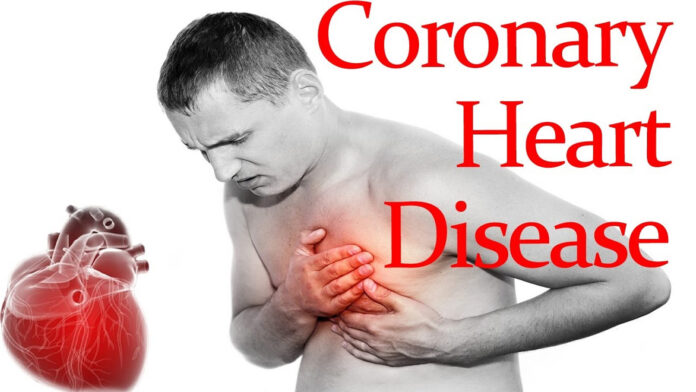CHD disease(Chromosomal Deletion Syndrome) is a genetic disorder in which there is a deletion of part of the chromosome containing the genes. They result in various physical, mental, and behavioral problems. A typical syndrome occurs when a part of a chromosome is missing. For example, if a person has a deletion of part of chromosome 15, they may have Angelman’s syndrome, Prader-Willi syndrome, Williams syndrome, or Rett syndrome. Several syndromes also do not fit neatly into one of the traditional categories called “de novo” syndromes. These syndromes occur when part of the chromosome is deleted in only one parent. If you suffer from these symptoms, you may be dealing with CHD. The CHD disease is common and can be easily treated with proper medication. I am writing this article for people who have never heard about this disease. This article will help you understand more about this disease.
Chd disease is a term used to describe illnesses that last longer than six months. Some people are surprised to learn that many Americans live with chronic conditions such as asthma, diabetes, arthritis, cancer, heart disease, stroke, and depression.
Chd disease is a term used to describe illnesses that last longer than six months. Some people are surprised to learn that many Americans live with chronic conditions such as asthma, diabetes, arthritis, cancer, heart disease, stroke, and depression.
The good news is that there are many things you can do to help manage chronic conditions, and today, I’m going to share some of the best strategies and tools to do just that.
Introduction:
CHD disease(Chronic Heart Disease) is an illness that can cause serious damage to your heart. The disease is progressive and is usually caused by lifestyle factors such as unhealthy diet and lack of exercise. Cholesterol, triglycerides, and low-density lipoprotein cholesterol can cause plaque buildup on the inner walls of your blood vessels. When this happens, the flow of blood may slow down or even stop completely, which can eventually lead to a heart attack or stroke. The symptoms of high cholesterol levels in your body are difficult to spot. They do not necessarily appear at first but only later when the disease progresses. For example, if you have a high level of triglycerides, then you may have fat deposits around your middle and upper abdomen. You may develop clogged arteries in the heart if you have high cholesterol levels. This may lead to chest pain and shortness of breath. Cholesterol Levels in the body may also be found in the joints and the nervous system.

The Basics Of CHD Disease
Chronic diseases are a leading cause of disability, loss of work productivity, and premature death in the United States. According to the Centers for Disease Control and Prevention (CDC), approximately 36 million adults and children in the U.S. currently live with a chronic illness. These conditions, which include heart disease, cancer, diabetes, arthritis, asthma, and mental health disorders, are some of the most common reasons why people miss work, experience long-term pain, or require medical treatment.
What Are The Symptoms?
CHD diseases are often slow-moving. They may not cause pain or noticeable symptoms until later in the disease process. As a result, you may not know if you have a chronic condition.
However, there are some telltale signs that you may be suffering from a chronic condition. You might feel achy, have low energy, experience weight gain, or have difficulty sleeping. If you suspect you have a chronic disease, it is important to consult with your physician. In addition to your general medical history, your doctor will want to know more about your current health status. Chronic conditions are often treatable. Your doctor can help you find ways to manage and control your symptoms. Preventing Chronic Conditions: Many people don’t realize that certain lifestyle changes can prevent many common chronic conditions. For example, if you eat a healthy diet and exercise regularly, you may be less likely to develop diabetes.
How can you treat Chd disease?
Chd disease is defined as a condition that lasts longer than six months. According to the Centers for Disease Control and Prevention, more than 46 million Americans have chronic illnesses. YThat’sou doesn’t want to be part of that staggering number.
A CHD disease diagnosis can be a scary and frustrating experience. While most patients can manage their disease well, a few are not so fortunate. If you’re one of those people, you’ve got this.
CHD diseases are also very expensive and often require ongoing medical care. Here are some basic steps to help you better understand how to treat chronic disease.
How do you know if you have CHD disease?
Chronic diseases such as CHD can affect people for years and even decades. These diseases can start small but gradually progress.
Recognizing the signs of a chronic illness and seeking medical help early is important. Chronic diseases are usually treated with medication, lifestyle changes, and sometimes surgery. This article will review common types of chronic diseases and their symptoms. Chronic illness may be caused by genetics or environment, and it can occur at any age. It is important to know what to look for if you notice changes in your body. Some conditions are not life-threatening, while others can have long-term effects.
What Causes Chd Disease?
A long duration of symptoms usually characterizes CHD diseases. It is important to note that chronic diseases are not the same as chronic conditions.
Chronic conditions are problems that tend to slow progression and may or may not require treatment.
CHD diseases are often treated with lifestyle changes or medical interventions. Lifestyle changes can include exercise, diet, and stress management.
Medical intervention can include prescription drugs, surgical procedures, and hospitalization.
The most common causes of CHD diseases include obesity, high blood pressure, and high cholesterol. The CHD condition can affect any part of the body, including joints, muscles, bones, skin, eyes, ears, mouth, nose, throat, stomach, intestines, liver, gallbladder, pancreas, lungs, brain, heart, immune system, blood vessels, kidneys, and reproductive organs.
What Are Some Types Of Child Treatment?
Chronic diseases, such as CHD, are very common today. Many people are unaware that they are suffering from one of the most common diseases in the world. CHD can be treated with drugs or by changing your lifestyle.
There are many different types of CHD treatment. Some of them include exercise, diet, and medication. One of the best ways to treat CHD is by exercising. It will help you lose weight and improve your blood circulation. If you want to get healthy, you need to exercise. If you have any Chd, ensure you eat the right foods. Try not to eat too much fat and try to avoid fatty food. You should also limit your sugar intake. Try to drink a lot of water. It will help you stay healthy. Make sure to go for regular check-ups. You should know what your doctor is saying.
Frequently Asked Questions About CHD disease.
Q: What is CHD disease?
A: Chondrodysplasia is a rare genetic disorder with impaired cartilage growth.
Q: What are some of the symptoms?
A: Symptoms may include abnormal bones (abnormal bone length, shape, or position), joint instability, difficulty standing, walking, or sitting, hearing loss, intellectual disability, learning disability, poor muscle tone, scoliosis, stiff joints, short stature, vision impairment, speech impairment, and an increased risk of infection.
Q: How does CHD affect my health?
A: The long-term effects of CHD may include reduced life expectancy and early death, physical limitations, intellectual disabilities, and complications from surgery and other medical interventions.
Q: What’s CHD?
A: Chd is a condition where the skin doesn’t function correctly. Several things can cause the most common reason is vitamin deficiency. When your body lacks certain nutrients, it will not produce the enzymes necessary for healthy skin. The disease manifests itself as small lesions on your skin. It’s very common in the summer when the sun is out more often. You risk your health if you have CHD and go to tanning beds.
Q: What is the child’s diet?
A: No diet will cure chd. It would help if you stayed away from sunlight and tanning beds. Vitamin D is very important, so take a supplement every day.
Top Myths about CHD Disease
1. Chd disease is rare.
2. A genetic disorder causes CHD disease.
3. Chd is not a disease.
4. Chd is caused by stress or diet.
5. The cause of Chd is unknown.
Conclusion
Chronic dehydration disease is a condition that develops when people fail to drink sufficient amounts of water. It’s characterized by symptoms including fatigue, headaches, muscle cramps, confusion, and sometimes heart problems.
The first step to treating CHD disease is to get enough rest. Some herbal remedies can help you sleep better and get back to normal.




